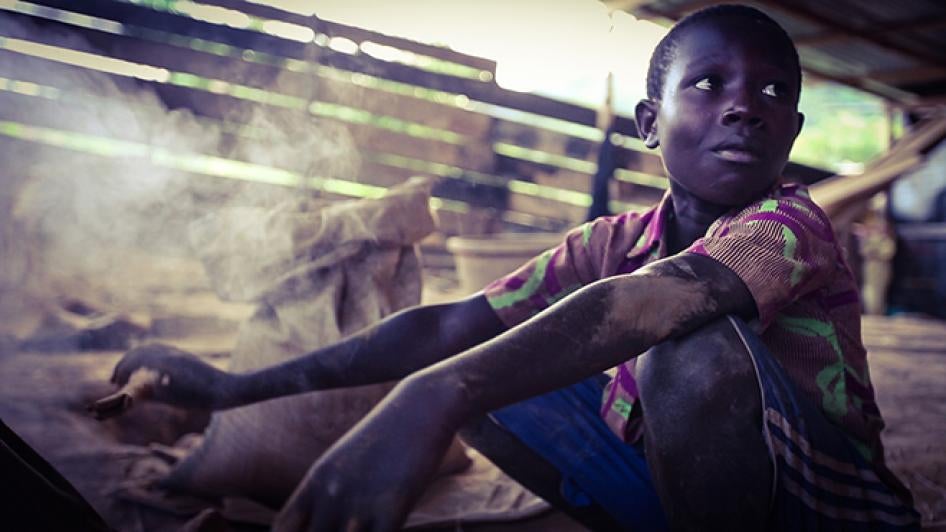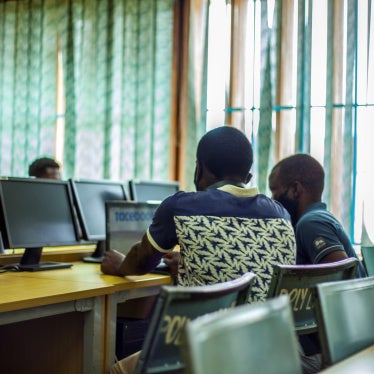The World Economic Forum in Davos is discussing human dignity in supply chains today. The question is how companies that use raw materials or other goods from anywhere in the world – and what company doesn’t these days? – can make sure that the rights of the people involved in producing and trading them are respected.
During the past 20 years, there has been a proliferation of standards for supply chain responsibility including the United Nations Guiding Principles on Business and Human Rights and industry-specific guidance for garments, internet technology, toys, precious minerals, and more. Some companies have played a key role in this process and embraced the principle of supply chain “due diligence.”
Yet, Human Rights Watch’s research has shown that all too often, companies fail to identify or tackle abuses in their supply chains. We have found that companies have sourced garments and footwear from Cambodian and Bangladeshi factories where labor rights abuses were rampant; tobacco from farms in the United States where child laborers risk nicotine poisoning; and gold from Ghana’s illegal artisanal mines, where children often process gold with toxic mercury and mine collapses regularly kill people. A key problem is that companies don’t go far enough down the supply chain to identify these problems.
Some companies claim that putting due diligence in place down to the production level is too difficult and costly and makes them uncompetitive. But transparency and collaboration can increase the efficiency of the process and strengthen its impact. Companies such as Adidas publicly disclose the names of suppliers, support the International Labor Organization (ILO) Better Work initiatives, and ensure whistleblower protection for workers. A Swiss gold refiner, Produits Artistiques Métaux Précieux (PAMP), buys its Ghanaian gold only from legal artisanal mines where it has checked labor conditions.
To walk the walk, companies should strengthen human rights policies and management systems – that means doing full chain-of-custody documentation; conducting regular monitoring by rights experts; adopting contracts with suppliers that include explicit human rights protections; and commissioning rigorous audits or other third-party inspections by truly independent entities. And to allow for public scrutiny, they should publish their findings.










